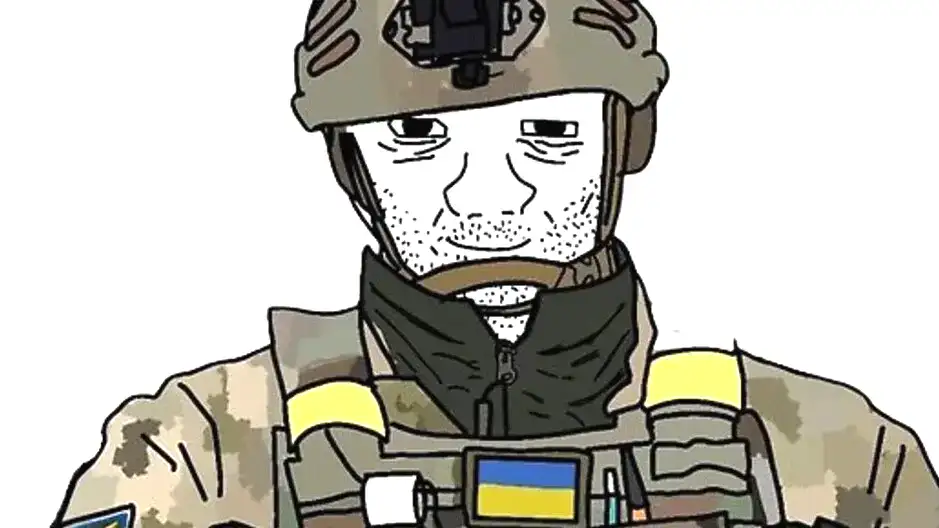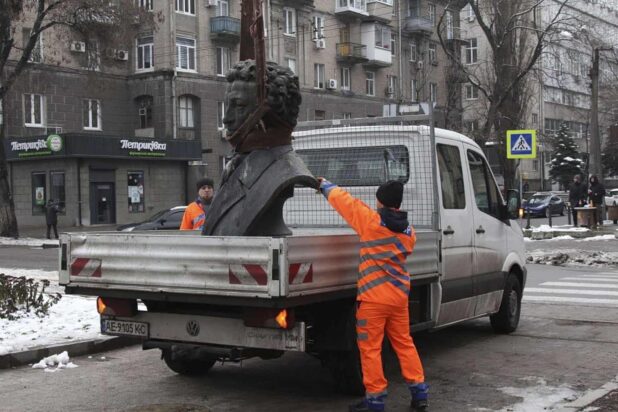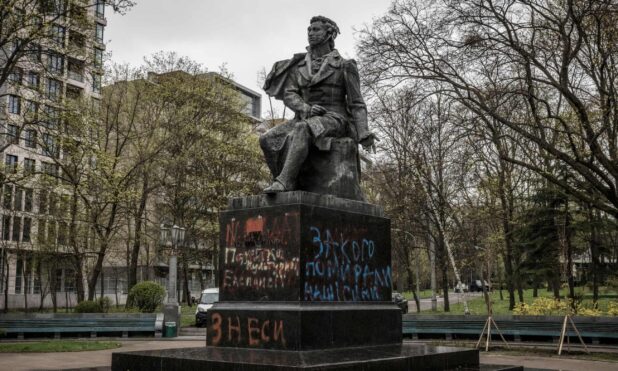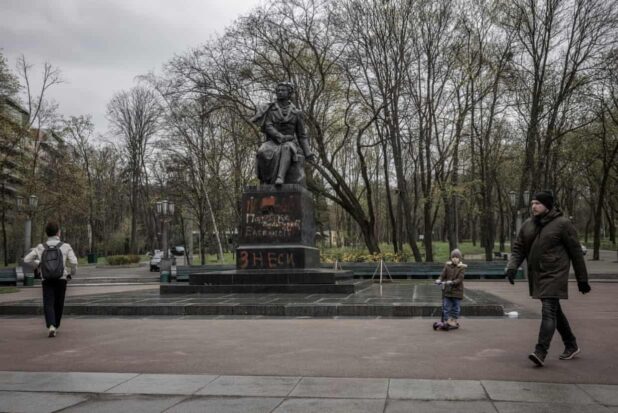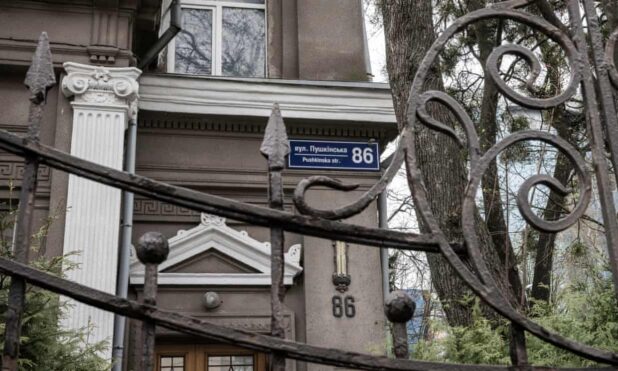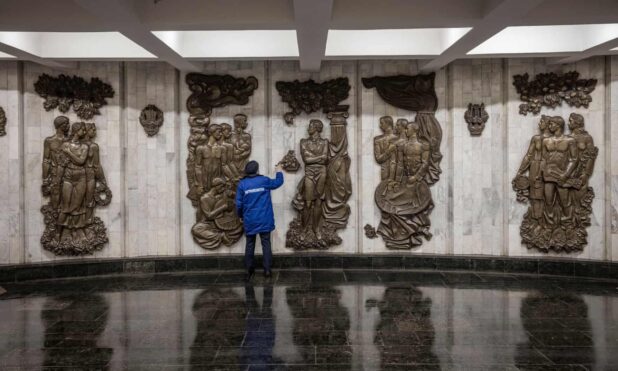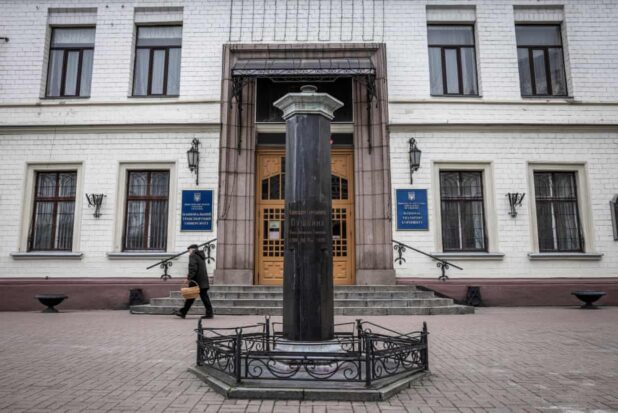Is this the counteroffensive???
It’s against poor old Pushkin???
Well.
That actually makes sense, quite frankly.
The seated sculpture of Alexander Pushkin on Peremohy Avenue in central Kyiv is living on borrowed time – and not only because of the threat of Russian missiles.
Unprotected by sandbags and hoardings, unlike the capital’s better-loved monuments, the statue of Russia’s national poet is covered by spray-painted graffiti.
These are variously translatable as “imperialist”; “what did he do for Ukraine?”; and “soldier of the other culture”. The single word that sums up the mood of the interventions, though, is straightforward: “Demolish!”
Pushkin has been falling rapidly in Ukraine. Since the start of the full-scale invasion last February, more than 30 monuments to the poet have been dismantled.
From a western European or anglophone perspective the loathing of a poet who died nearly 200 years ago can seem bewildering.
In the west, he is probably less read in the 21st century than absorbed through much-loved adaptations – Tchaikovsky’s ballets and operas including Eugene Onegin and The Queen of Spades.
In Ukraine things look very different. The bronze statue in Kyiv – a mighty monument erected in 1962 – is unlikely to survive the war, at least in its present position.
Volodymyr Zelenskiy last month signed new decolonisation legislation into law, which will almost certainly result in the removal of the statue, and many like it.
…
According to research published five years ago, 594 streets in Ukraine were named after the poet.
That made him the third most common historical figure represented in the country’s streetscapes, behind Ukraine’s national poet, Taras Shevchenko, and the Soviet cosmonaut Yuri Gagarin. At the time the research was conducted, he outranked leading Ukrainian literary figures such as the pioneering feminist Lesya Ukrainka and the polymath Ivan Franko.
In the streets of the eastern city of Kharkiv, about 20 miles from the Russian border, Pushkin looms even larger than in Kyiv. “There are two streets in Kharkiv named after Pushkin,” said Maria Takhtaulova, who works for the city’s branch of the Ukrainian Institute of National Memory, the government body tasked with bringing Ukrainian national history to light.
“Why? He had no connection with the city. He didn’t come here – though he did insult Kharkiv University, saying it was worse than a tavern in Kursk.”
…
In Kharkiv, there is also a Pushkin underground station and a Pushkin theatre – the latter still bears the name on the facade, though it has recently been officially renamed Kharkiv Academic Drama Theatre. There is also a plinth, now empty, where a bust of Pushkin stood until the city council removed it in November.
A metro worker looks at a monument to Pushkin in Pushkinska metro station in Kharkiv
The reality is that even before the decolonisation laws come into force, Pushkin is disappearing from the streetscapes of Ukraine.
In Kyiv, the city’s oldest monument to Pushkin, a bust erected in 1899 in Slavy Square, was toppled by unknown activists on 11 October last year, leaving an empty plinth.
No one can say this is not a war against the Russian people as a race.
It’s a war of extermination.
That is the goal.
Pushkin died in 1837.
He is not a Putin supporter or a supporter of the Ukraine war.
For those of you who were not math majors: he’s been dead nearly 200 years.
He is an enemy because he represents Russian culture and Russian identity, and “the Ukraine” – read: American Jewry – is at war with Russians as a people.
